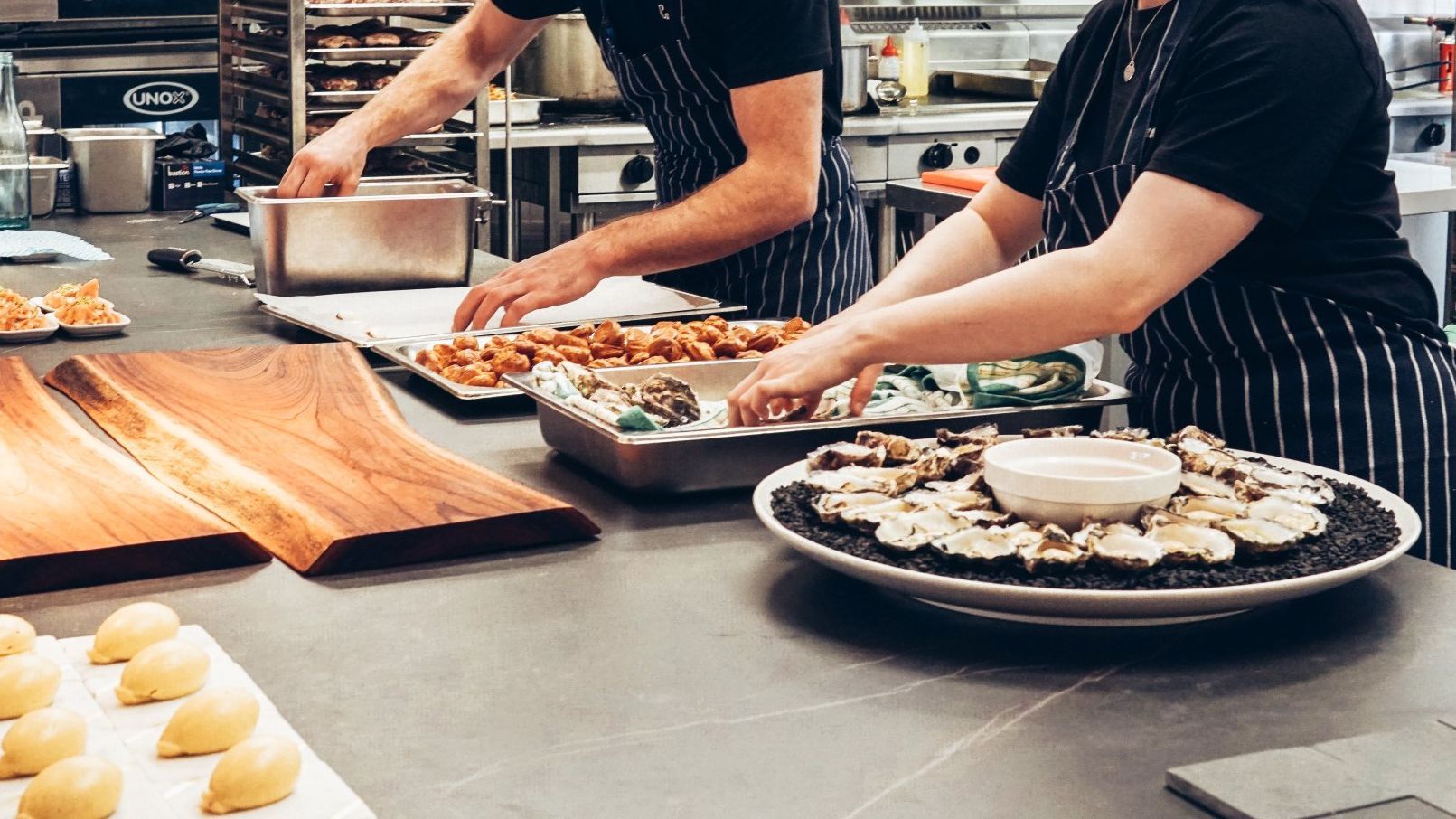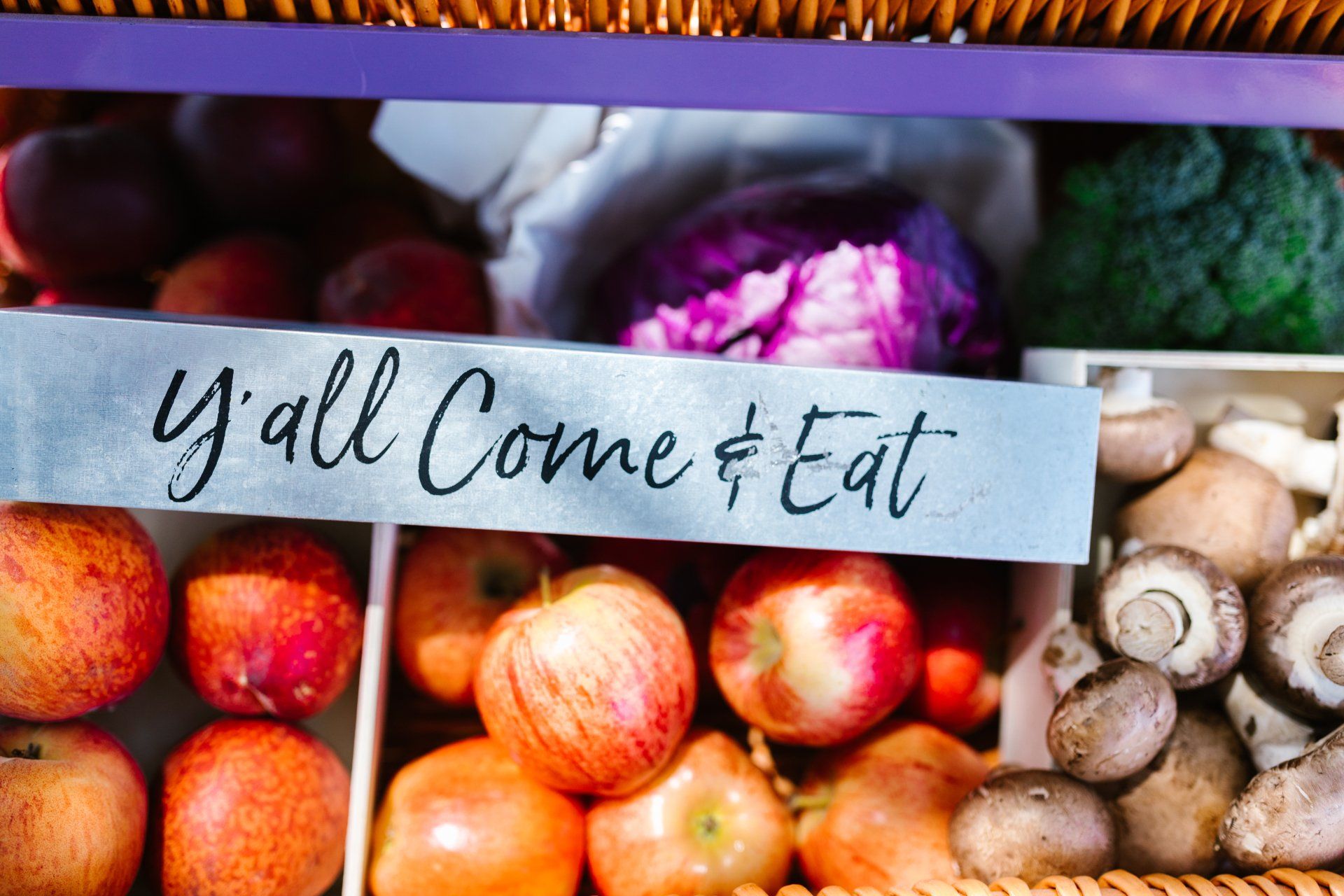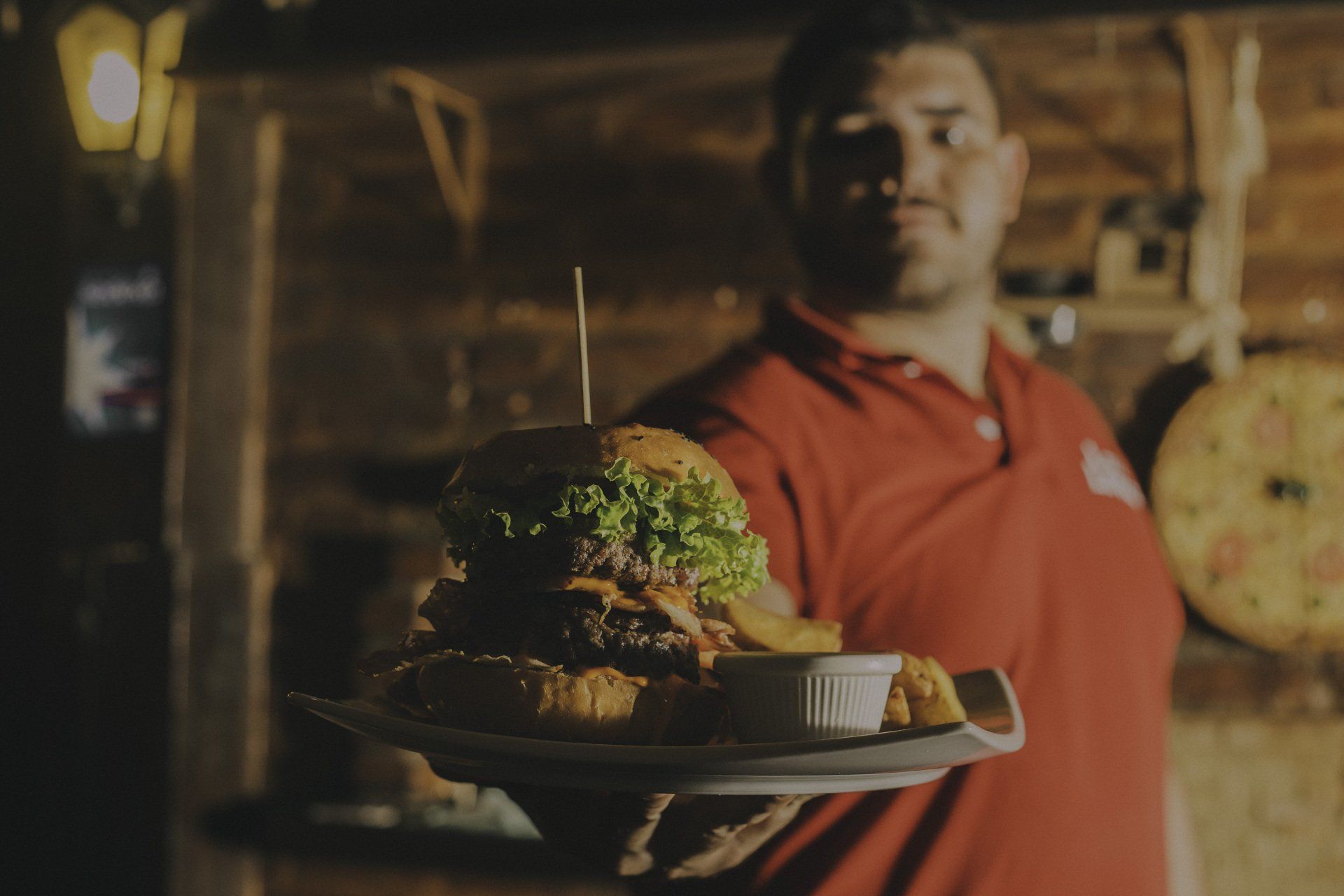Building Strong Supplier Relationships for Hawaii Food Businesses
Chris Wall • Jan 03, 2024
In the dynamic world of Hawaii's food industry, establishing and maintaining strong supplier relationships is a critical factor in the success of your business. Suppliers play a pivotal role in providing the high-quality ingredients, products, and services that are essential for delivering exceptional culinary experiences
to your customers. This comprehensive article delves into the importance of building strong supplier relationships and offers valuable strategies and tips for cultivating successful partnerships. If you're looking to optimize your supplier network and elevate your Hawaii food business, our consulting company is here to guide you every step of the way.
The Importance of Strong Supplier Relationships:
Consistent Quality and Reliability:
Strong supplier relationships ensure a steady supply of high-quality ingredients and products. By cultivating a strong bond with your suppliers, you can rely on consistent deliveries, reducing the risk of disruptions in your operations. This allows you to maintain the quality and integrity of your offerings, earning the trust and loyalty of your customers.
Competitive Pricing and Cost Savings:
Establishing strong supplier relationships enables you to negotiate favorable pricing and terms. By building trust and demonstrating the value of your partnership, you can often secure better deals, discounts, or volume pricing. This helps you optimize your cost structure, enhancing your profitability and competitive edge in the market.
Access to Specialized Products and Services:
Developing strong relationships with suppliers can open doors to unique and specialized products and services. Suppliers who understand your business needs and goals can offer tailored solutions, introducing you to new ingredients, innovative technologies, or exclusive offerings. This allows you to differentiate your Hawaii food business and stay ahead of the competition.
Strategies for Building Strong Supplier Relationships:
Clearly Define Your Expectations:
Clearly communicate your expectations to your suppliers from the start. This includes factors such as product quality, delivery schedules, pricing, and customer support. By setting clear guidelines, you establish a foundation for a mutually beneficial relationship built on trust and transparency.
Foster Open Communication:
Maintain open lines of communication with your suppliers. Regularly check in, provide feedback, and address any concerns promptly. Establishing a strong communication channel allows for a proactive and collaborative approach to problem-solving, ensuring the smooth operation of your business.
Build Personal Connections:
Invest time and effort in building personal connections with your suppliers. Attend industry events, visit their facilities, and engage in face-to-face meetings whenever possible. Developing personal relationships fosters mutual trust and strengthens the bond between your businesses.
Pay on Time:
Timely payment is essential for maintaining strong supplier relationships. Honor your payment terms and communicate any changes or delays in advance. Prompt and consistent payment builds credibility and reinforces your commitment to your suppliers.
Collaborate and Share Information:
Engage in collaborative efforts with your suppliers. Share information about your business objectives, upcoming promotions, and menu changes. This allows suppliers to align their offerings and support your business goals effectively.
Tips for Maintaining Successful Supplier Relationships:
Stay Updated on Industry Trends:
Stay informed about industry trends, emerging technologies, and new product developments. Share this knowledge with your suppliers, and collaborate to explore innovative ways to enhance your offerings and stay ahead of the competition.
Provide Constructive Feedback:
Offer constructive feedback to your suppliers when necessary. Whether it's about product quality, packaging, or delivery processes, communicate your observations in a respectful and solution-oriented manner. This helps suppliers understand your expectations better and make improvements where needed.
Evaluate Performance Regularly:
Periodically evaluate your suppliers' performance based on predefined metrics. Assess their reliability, responsiveness, and overall contribution to your business's success. Conducting regular performance evaluations enables you to identify areas of improvement and address any issues proactively.
Seek Continuous Improvement:
Encourage continuous improvement by collaborating with your suppliers to streamline processes, optimize product quality, or reduce costs. Embrace a mindset of shared success, where both parties work together to drive positive change and deliver exceptional experiences to your customers.
Reach Out for Expert Guidance:
Building and maintaining strong supplier relationships is a complex and ongoing process. If you're looking to optimize your supplier network and elevate your Hawaii food business, our consulting company specializes in providing expert guidance and support. From supplier selection and negotiation to performance evaluation and improvement strategies, we can help you establish and maintain strong supplier relationships that will enhance your business's success. Reach out to us today to learn how our services can benefit your Hawaii food business.
Conclusion:
Building strong supplier relationships is crucial for the success of Hawaii food businesses. By cultivating these relationships, you can ensure consistent quality, competitive pricing, and access to specialized products and services. Implement the strategies and tips outlined in this article to establish and maintain successful partnerships with your suppliers. Remember, our consulting company is here to offer expert guidance and support in optimizing your supplier network.
Invest in building strong supplier relationships, and watch your Hawaii food business thrive and excel in the dynamic culinary landscape.

By Ritchel Escalona
•
24 Apr, 2024
Are you looking to attract more customers and grow your street or mobile food business in Hawai`i? Understanding the different communication channels and identifying and using the right ones to connect with specific customer demographics can significantly boost your brand, enhance your customer base, and strengthen your foodie community. The Entrepreneurial Spark Many street food entrepreneurs begin their journey organically and unexpectedly. You might have catered to a large gathering and received glowing reviews or participated in a festival where your food idea was a hit. Whatever your inspiration, it's crucial to leverage that initial success into a sustainable business. Assessing the validity of your business idea and creating a business model canvas (1-page business plan) will help map your success. One important element is identifying the channels you’ll use to communicate your brand and interact with your customers. Mastering Communication Effective communication with your audience is essential, not just for sharing your daily menu but for building lasting relationships. Your customers need opportunities to interact with you, whether to praise your dishes, inquire more about your offerings, or provide feedback. Key Communication Methods Understanding and utilizing various communication methods will help you effectively reach and engage your audience: 1. Verbal Communication : This can be direct conversations at your food cart or through digital means like phone calls and virtual meetings. Such interactions create a personal touch that can differentiate your business. 2. Written Communication : Keep your customers informed and engaged through texts, emails, social media posts, and even traditional methods like flyers and postcards. These tools are vital for announcing your location, specials, or changes in service hours. 3. Nonverbal Communication : The way you present yourself and interact with customers can speak volumes. Body language, eye contact, and even the setup of your stall contribute to how customers perceive your business. These cues, though subtle, are powerful in person or through video. Choosing the Right Channels Selecting appropriate communication channels is crucial. Different customers may prefer different types of interactions. For instance, younger customers might engage more with social media updates, while others may value face-to-face communication. Listening to customer feedback is key—it can inspire new dishes and help refine your approach. Engaging to Grow Communication should be a two-way street. It's not just about selling; it's about engaging in a manner that encourages customers to participate in your business's growth. This could mean involving them in menu decisions or making them feel like part of your brand's community. Conclusion For street and mobile food vendors, especially in a diverse place like Hawai`i, understanding how to communicate effectively is more than a necessity—it's a strategy for growth. By choosing the right channels and fostering genuine interactions, you can turn casual eaters into loyal customers and active promoters of your business.

By Karen Chang Barr
•
02 Jan, 2024
Embarking on the journey of starting a food business is definitely thrilling, especially when your passion for a particular culinary concept is the main focus in your day-to-day thoughts. I often refer to it as the "Lala land stage" (where all you can think of is the fairy tale version of starting your business where no challenges exist), envisioning the success of your venture seems effortless. Whether it's the nostalgic flavors of your ethnic cuisine, a beloved dessert, or the dream of operating a bustling food truck, the key to a thriving food business lies in careful planning and realistic cost projections. Having collaborated with a number of commercial kitchen food trucks and other mobile food businesses clients, I've observed a common pitfall: overspending (and getting into personal financial debt) due to a lack of understanding about costs and separating personal from business finances. Many entrepreneurs find themselves grappling with the financial strain of extensive menus without a clear comprehension of the associated expenses. This leads to challenges such as insufficiently pricing items to cover production costs and lacking a profitable margin. Here are crucial considerations when launching your small food business: Startup Costs: Determine the initial investment required to launch your business. Monthly Operating Costs : Identify recurring expenses your business will incur Projected Monthly Revenue: Estimate your expected income. Compliance and Tax Costs: Factor in costs related to regulatory compliance and taxes Available Startup Capital: Assess the funds you have at your disposal. Additional Funding Needs: Determine how much extra capital you’ll require. Break-Even Analysis: Calculate the sales needed to cover the costs and break even. Developing a startup cost projection worksheet aid in understanding the financial landscape of your venture will be beneficial. It provides insights into the costs, your financial contribution, and additional funding requirements. Equally important is creating a 12-month or 2-year monthly projection of revenue and expenses. This serves as a roadmap, indicating the volume of sales needed to cover expenses and achieve profitability. While these documents are initially estimates, they form a foundation for understanding your business's financial dynamics. Over time, you'll refine your projections based on real-world outcomes. Pay particular attention to determining the cost of production for each menu item and be sure to include overhead. This knowledge enables you to price products effectively, covering expenses and generating profit. Consider starting with a limited menu to gauge customer preferences before expanding. Regularly review and adjust your projections based on performance, enhancing efficiency and fostering the successful growth of your small food business. Understanding costs, making informed financial predictions, and adapting to market dynamics

01 Dec, 2023
Discover how online reviews can be a game-changer for your Hawaii food business. This exciting article explores the impact of positive reviews, strategies to generate more reviews, and how our consulting services can help you leverage the power of online feedback to grow your business and attract new customers.

01 Nov, 2023
Craft an irresistible menu for your food business in Hawaii with these expert tips. From incorporating local flavors to balancing variety and simplicity, this blog post offers valuable insights to attract customers and maximize your business's success. Discover how our food business consulting service can help you create a menu that stands out in Hawaii's culinary landscape.

By Karen Chang Barr
•
08 Jul, 2023
Do you have a great idea for a small food business? If you’ve got great recipes and want to start your small food business, before you jump on the internet and register your business, take a deep breath and analyze your idea. Not all business ideas are meant to come to fruition, but, by doing a SWOT Analysis, you’ll be able to see whether your business startup is viable or not, and if you have what it takes to make it happen. Many people are so excited when they get a vision of starting their own business, but don’t spend the time to see if they have the skills, tools and resources to execute launching it. The SWOT Analysis is an assessment tool that requires you to list and review strengths, weaknesses, opportunities and threats of your business startup. Strengths stands for listing the strengths of your business idea and the strengths you bring to the potential business. Weaknesses is the honest inventory of the business owner’s and startup idea’s weaknesses. Opportunities are the ways that your business can grow and become successful. It can include people, funding, stakeholders, partners and marketing. Threats are internal and external forces that could destroy the success of the business idea. It can range from the startup owner’s inability to manage finances, to an abundance of similar businesses, to finances. If the assessment is done with complete honesty, the process can be eye-opening. You may find you have strengths you didn’t realize you had and, conversely, you may minimize the business idea’s weaknesses. When conducting a SWOT analysis, it’s important for you to have one or two of your most trusted friends or family members give feedback. It’s important that these reviewers are willing to provide honest feedback. By conducting a SWOT analysis, you’ll see skills you never thought you had and challenges that will need to be overcome. It’s okay. If you can overcome your challenges and understand that you bring a lot to your potential business, you can build and grow a successful small food business.

08 Jul, 2023
Embarking on a food business venture in Hawaii is an exciting endeavor. The vibrant culinary scene, rich cultural heritage, and the abundance of local flavors create a unique environment for food entrepreneurs. However, ensuring compliance with permits and regulations can seem overwhelming, especially for those new to the industry. In this comprehensive guide, we will navigate the specific permits and regulations for food businesses on O'ahu, providing valuable insights and resources to help you thrive. Our SEO consulting services are designed to optimize your online presence and connect you with the right resources for success. Understand the Licensing Process: Before launching your food business, it's crucial to understand the licensing process. In Hawaii, the Department of Health (DOH) regulates food establishments. Begin by obtaining a General Excise Tax License and then proceed to apply for a food establishment permit. Familiarize yourself with the specific requirements and gather the necessary documentation to streamline the application process. Comply with Food Safety Standards: Food safety is of paramount importance in the food industry. Ensure that your establishment meets all health and safety regulations to protect both your customers and your business. Develop a comprehensive food safety plan, train your staff in proper hygiene practices, and maintain accurate records of temperature logs and food storage. Acquire the Appropriate Permits: Beyond the general food establishment permit, additional permits may be required depending on the nature of your business. For example, if you plan to operate a food truck, you'll need a Mobile Food Establishment Permit. If you intend to serve alcohol, an additional liquor license will be necessary. Research and understand the specific permits relevant to your business to ensure full compliance. Understand Zoning and Land Use Regulations: Zoning and land use regulations vary across different areas of O'ahu. Ensure that your chosen location aligns with the zoning requirements for food businesses. Consult the Department of Planning and Permitting (DPP) to verify that your desired site is suitable for your operations and avoid potential conflicts in the future. Stay Informed about COVID-19 Guidelines: The ongoing COVID-19 pandemic has introduced additional regulations and guidelines for food businesses. Stay up to date with the latest mandates from the DOH and local authorities. Adhere to social distancing protocols, implement robust sanitation practices, and ensure compliance with mask-wearing requirements to safeguard the health of your staff and customers. Secure Proper Insurance Coverage: Protect your food business from unforeseen events by securing appropriate insurance coverage for business owners in Hawaii . This includes general liability insurance, product liability insurance, and workers' compensation insurance. Consult with insurance providers who specialize in the unique needs of the food industry to ensure you have comprehensive coverage in Hawaii. Consider Sustainability and Environmental Regulations: Hawaii places great emphasis on sustainability and environmental conservation. Embrace eco-friendly practices in your food business by implementing recycling programs, reducing food waste, and sourcing sustainable ingredients. Familiarize yourself with regulations related to composting, recycling, and plastic usage to minimize your environmental impact. Seek Local Resources and Support: Navigating permits and regulations can be complex, but you don't have to do it alone. Take advantage of the resources and support available to food business owners on O'ahu. The Hawaii Small Business Development Center, local industry associations, and community organizations can provide guidance, workshops, and mentorship to help you navigate the regulatory landscape. Maintain Ongoing Compliance: Regulatory requirements may evolve over time, so it's crucial to stay informed and maintain ongoing compliance. Subscribe to updates from the DOH, DPP, and other relevant authorities to ensure you're aware of any changes that may impact your business. Regularly assess your operations and make adjustments as needed to remain compliant. Conclusion: Starting a food business on O'ahu is an exciting journey, and understanding the permits and regulations is vital to your success. By familiarizing yourself with the specific requirements, maintaining compliance, and leveraging local resources, you can navigate the regulatory landscape with confidence. Embrace the opportunity to share your culinary creations and contribute to the diverse and thriving food scene on O'ahu .
Office
808-809-4BIZ (4249)
Email us
Subscribe to our newsletter
Contact Us
Thank you for contacting us.
We will get back to you as soon as possible.
We will get back to you as soon as possible.
Oops, there was an error sending your message.
Please try again later.
Please try again later.
© 2024
All Rights Reserved | Ho‘onui LLC
Hawaii Food industry Web & Marketing Services Provided by Strafford Media




